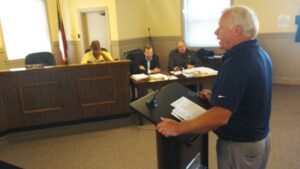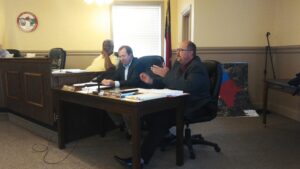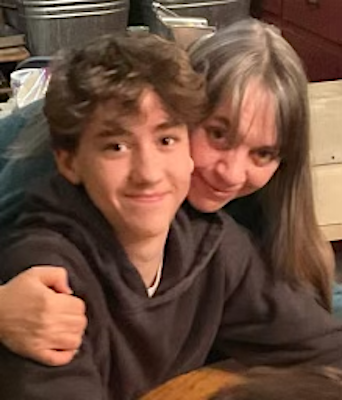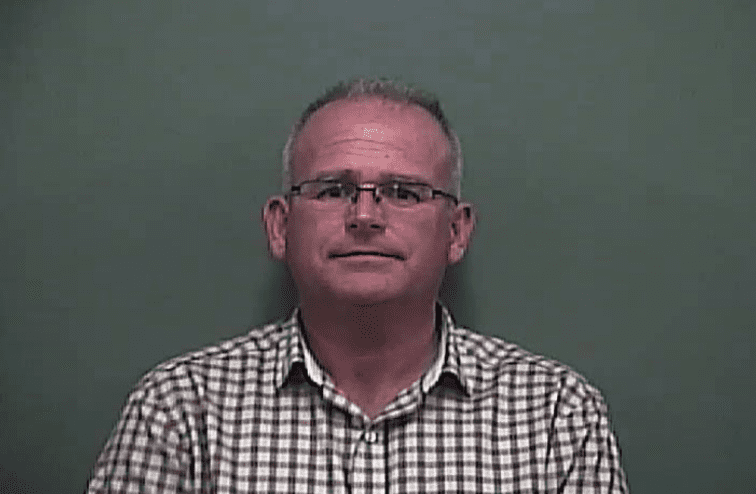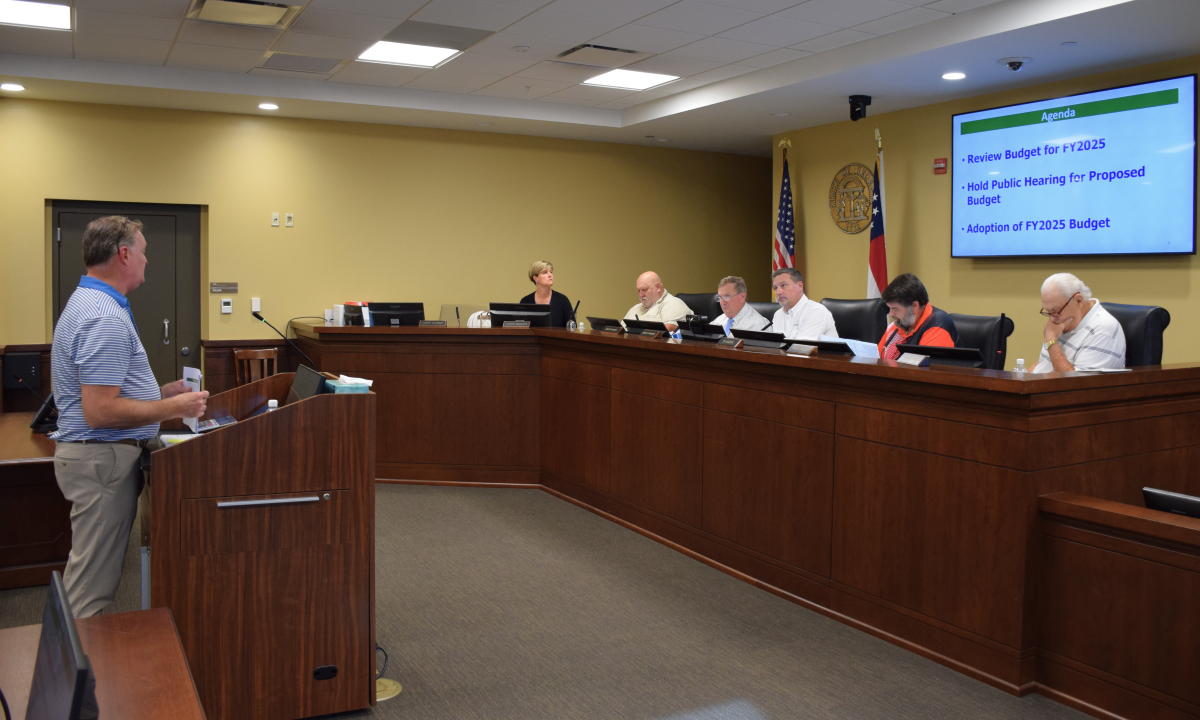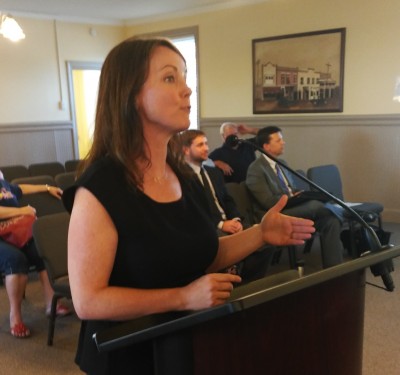
The impact of storm water run-off was the focus of the Cornelia City Commissioner’s meeting Tuesday night, demonstrating a growing concern across Georgia over impervious materials like parking lots, streets and buildings that limit the earth’s ability to soak up rain water.
Courtney Reich, Ecological Planning Group, presented a detailed report on Cornelia’s situation with rain water and its impact on local storm water drains. Cornelia has several locations where culverts and inadequate rain water handling system’s damage infrastructure. Ms. Reich was accompanied by Marty Boyd, with Carter and Sloope Engineering, Cornelia’s engineering firm, who explained to Now Habersham following the meeting, that Cornelia, like all communities, has two sewer lines, one for human waste, and the second for rain water. Mr. Boyd explained, “When it rains, water run-off from streets and parking lots picks up petroleum products and other debris, and it’s carried to streams and rivers.  How this drainage system works, or doesn’t work, creates problems.” Boyd added that anytime someone dumps something like discarded motor oil into a storm drain, they are actually dumping it directly into a neighborhood stream, or creek.
How this drainage system works, or doesn’t work, creates problems.” Boyd added that anytime someone dumps something like discarded motor oil into a storm drain, they are actually dumping it directly into a neighborhood stream, or creek.
Cornelia has an inadequate storm water draining system, which has been reflected in damage to culverts and streets in certain areas. Five areas are under consideration for improvement: Wayside Street, 2nd Street, Clarkesville Street, Hoyt Street and the Galloway Stream and sewer restoration. Projected cost for all five projects is about $4.5 million.
Ms. Reich detailed how communities, about 50 in Georgia at this time, are working to repair and maintain storm run-off. “Most have a small fee, much like the water and sewer fees found on utility bills currently, and the funds generated help build better systems to handle rain water and then provide funding to maintain the infrastructure,” Reich told Now Habersham. She added that in most communities the amount is less than five dollars per month, per household. Large businesses with parking lots and expansive roof structures typically are assessed more.
The City Commission is collecting information on storm water handling systems as a feasibility study with plans to make a decision at some future point.
In other action, the City Commission voted to change the Growler Ordinance to keep it in-line with state statutes. Currently, beer served a growler breweries, are limited to on-site consumption of three one ounce samples.  These sample must be provided without charge. The new ordinance will allow up to 24 ounces for beer consumption and the establishment may charge for the drinks. Local growler establishment, Whistle Top Brew Company, would benefit by the change, which impacts all breweries across Georgia to develop the new industry.
These sample must be provided without charge. The new ordinance will allow up to 24 ounces for beer consumption and the establishment may charge for the drinks. Local growler establishment, Whistle Top Brew Company, would benefit by the change, which impacts all breweries across Georgia to develop the new industry.
The Commission also heard a request from Wade Rhodes concerning the Habersham Partnership for Growth. The business alliance is seeking funding to help promote and plan the Hwy 365-Historic 441 commercial corridor, which many feel will require careful planning and development.

